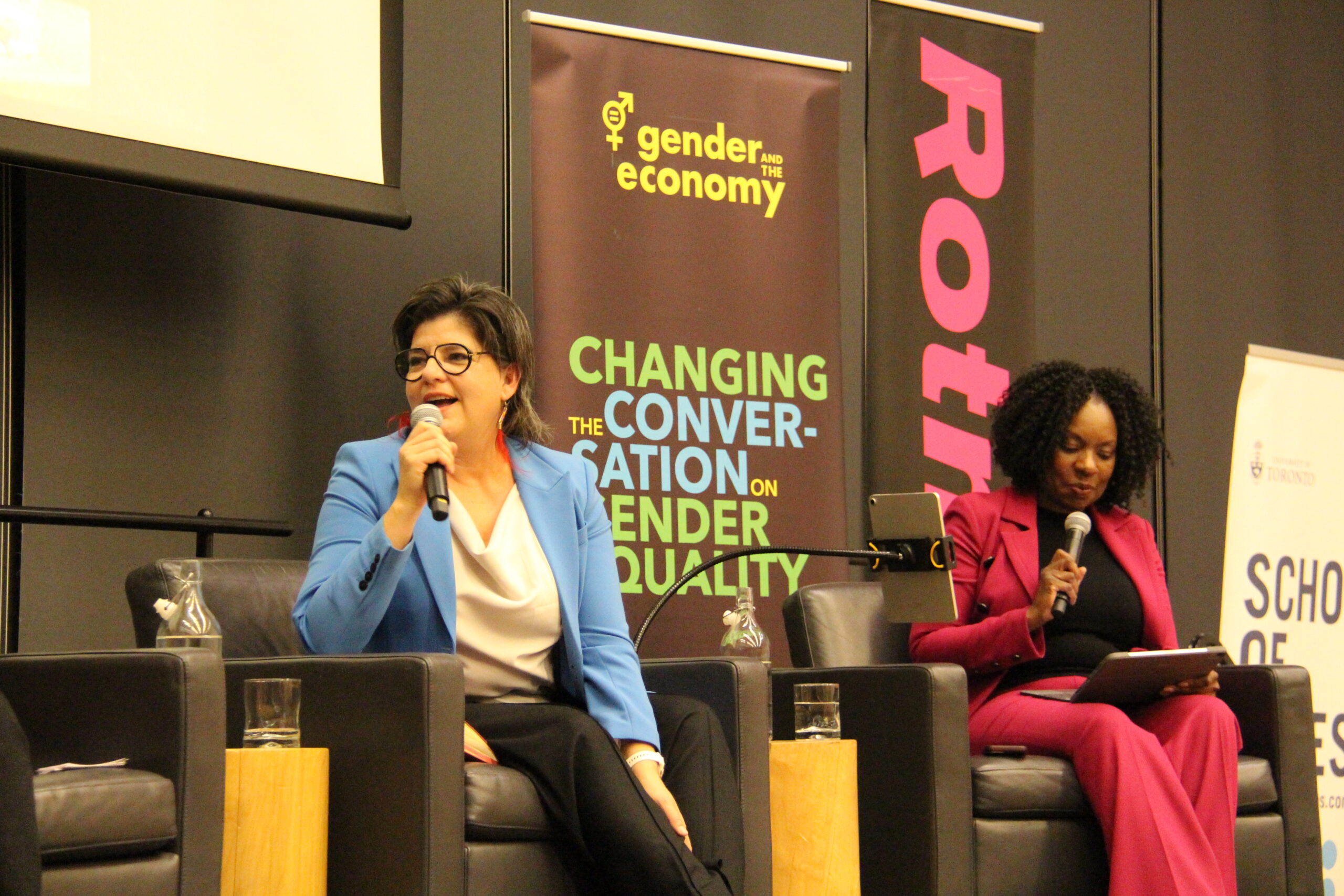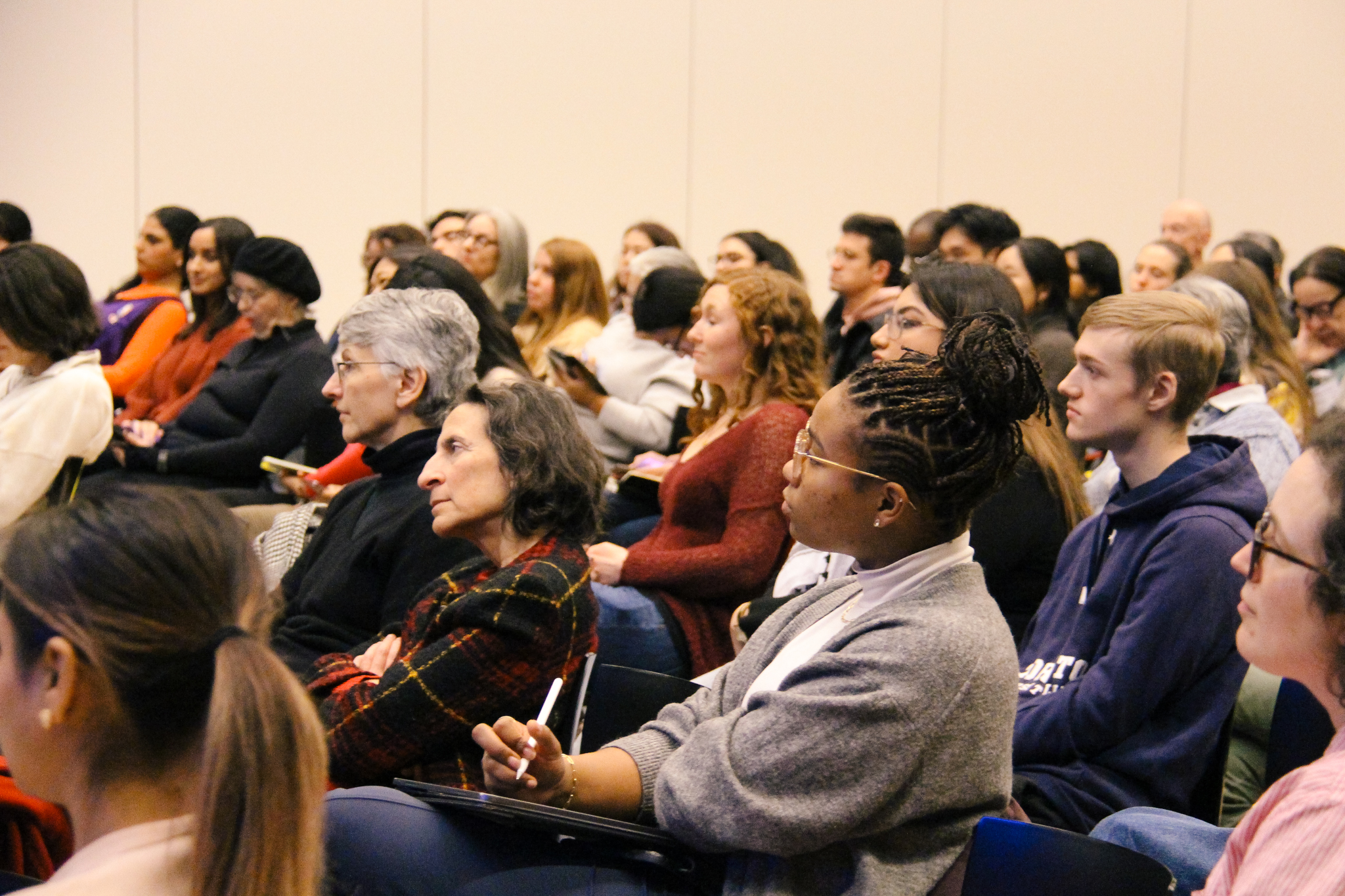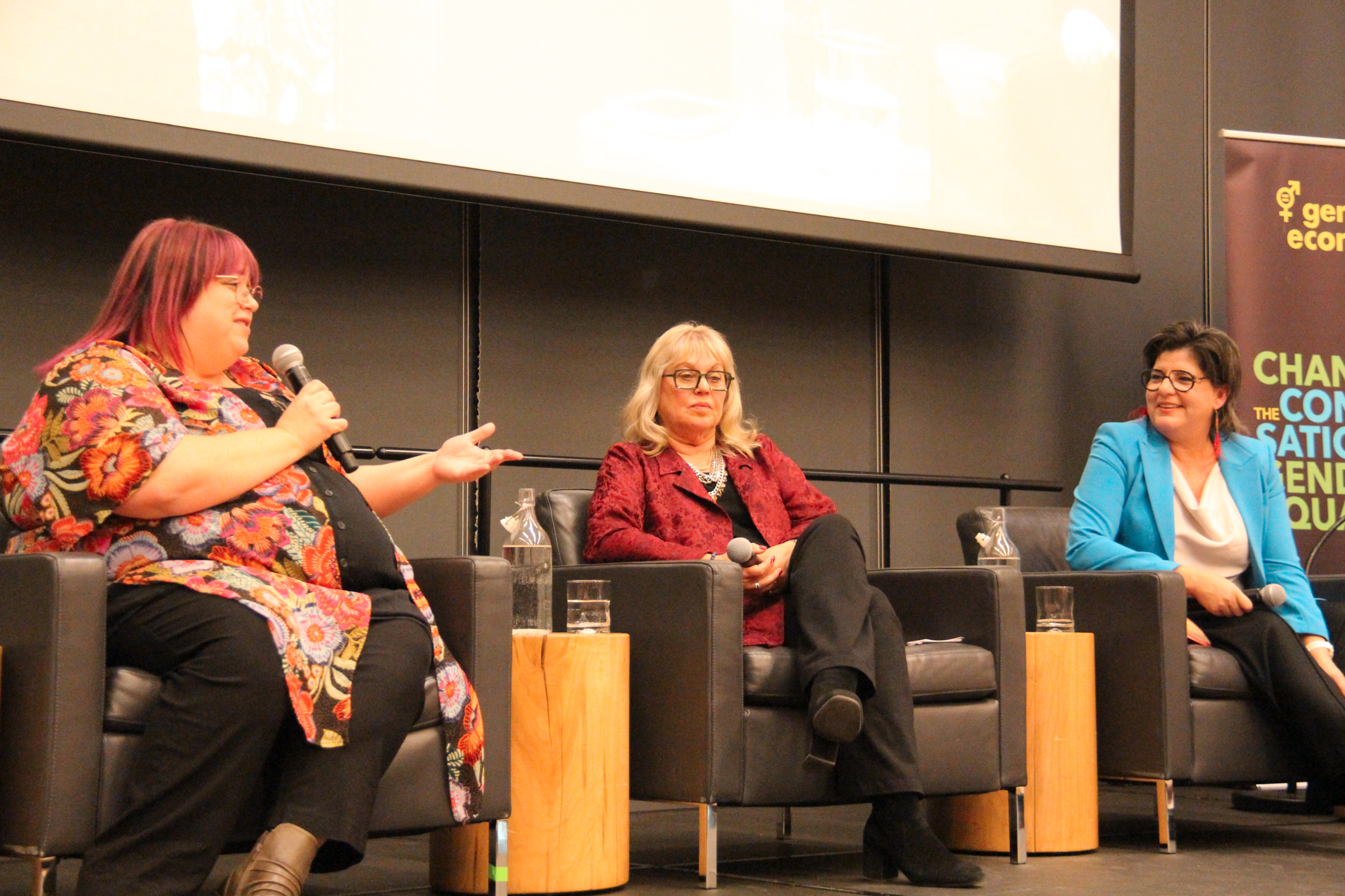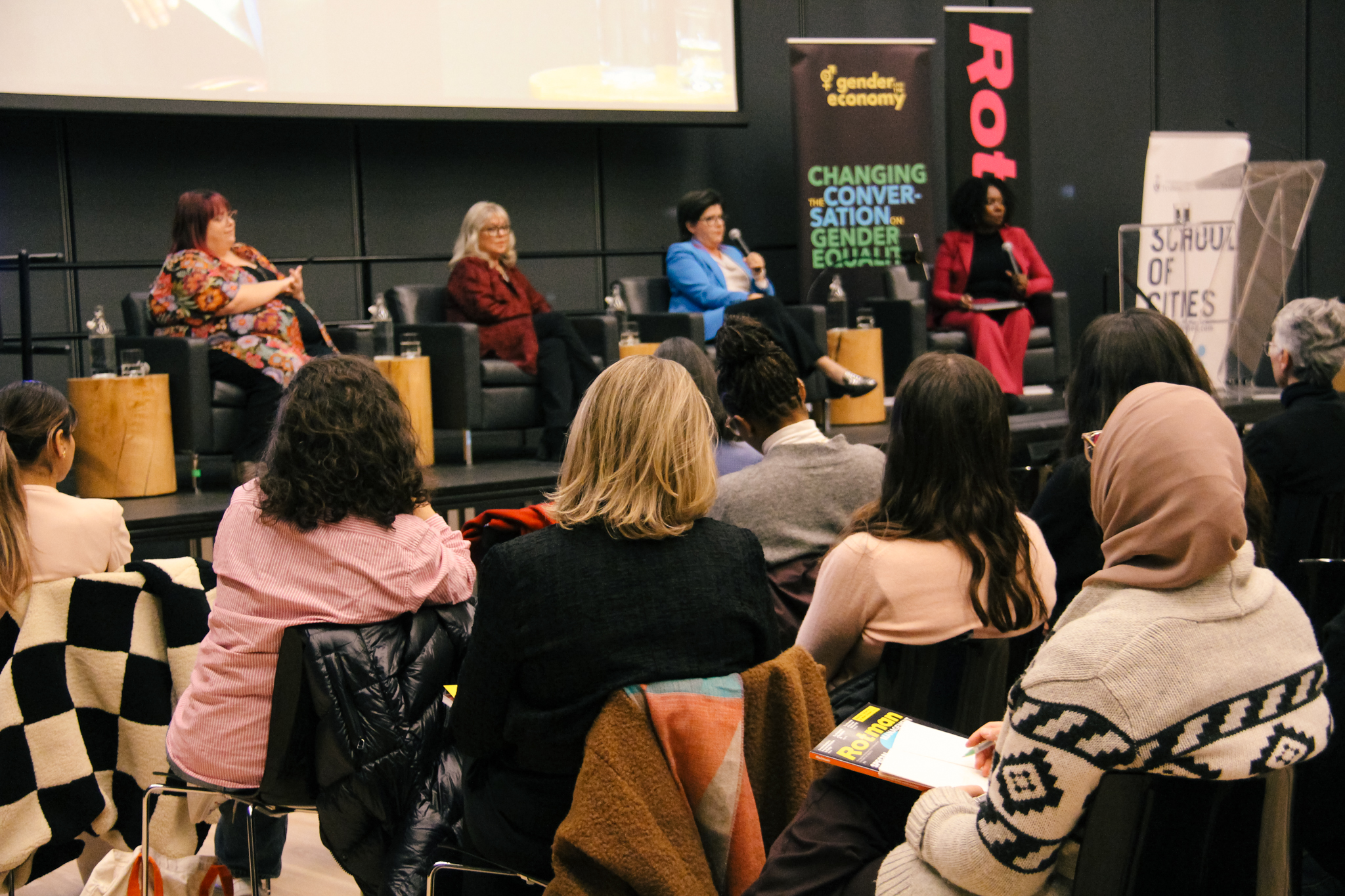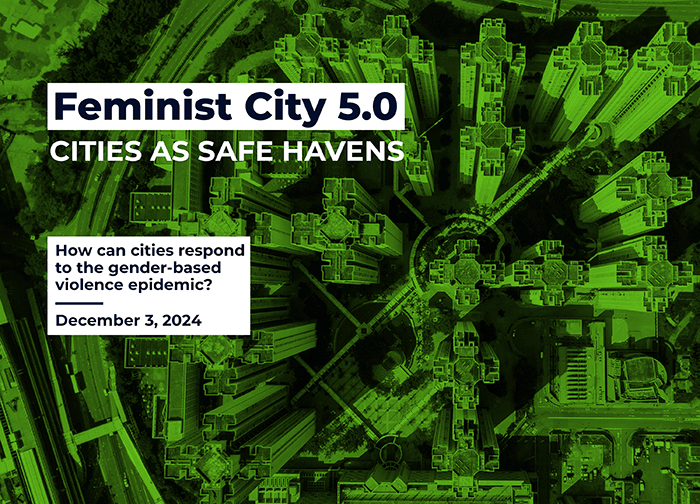Feminist City 5.0: Designing Safe Havens in Urban Spaces
On December 3, 2025, the Institute for Gender and the Economy (GATE) at the Rotman School of Management partnered with the School of Cities to host the fifth annual Feminist City event. This thought-provoking event explored how we can make our cities equitable, inclusive, and safe for all, particularly marginalized communities.
The event took place during two global observances: the 16 Days of Activism Against Gender-Based Violenceand the International Day of Persons with Disabilities. These milestones framed the discussion around the urgent need to address the housing crisis at the nexus of gender-based violence, homelessness, and the systemic barriers that prevent equitable access to urban spaces.
The panel, moderated by Mitzie Hunter, President and CEO of the Canadian Women’s Foundation and a Canadian Urban Leader at the School of Cities, featured experts with diverse perspectives on how cities can better serve vulnerable populations, including Ramona, Alaggia, Professor and Acting Associate Dean and Margaret & Wallace McCain Family Chair in Child & Family, Factor-Inwentash Faculty of Social Work, University of Toronto, Nelly Dennene, President, the Conseil des Montréalaises, Jennifer Gordon, Manager, Plan to End Chronic Homelessness, Region of Waterloo, and Sara Wolfe, GATE’s Executive-in-Residence.
The conversation centred on the following themes:
- Panelists defined “safe havens” as spaces where everyone feels safe and has valued.
- Speakers highlighted how marginalized groups, including women, gender-diverse individuals, Indigenous communities, and those experiencing homelessness, disproportionately face systemic barriers in urban environments.
- The panel underscored the structural challenges, including inadequate childcare, legal support, and banking services, which perpetuate inequity and trap women in abusive relationships. They emphasized the need for systems that support safety, housing, and care without placing the onus on individuals to navigate systemic failings
- Drawing from examples like Montreal’s equity index and gender-focused housing initiatives, panelists advocated for bold, systemic reforms. Solutions included increasing investment in social housing, implementing universal childcare, and fostering trauma-informed community support systems.
The event concluded with a call to reimagine cities as resilient, inclusive communities where everyone can thrive with equitable access to housing, care, and economic development opportunities.
“Resilience has really been misunderstood and framed in a neoliberal theoretical framework where it’s up to the individual to be resilient or not resilient, and we don’t subscribe to that. Individuals need environments that promote their resilience, and that provide opportunities for resilience. That’s how resilience is fostered for individuals, families and communities.”
— Ramona, Alaggia
